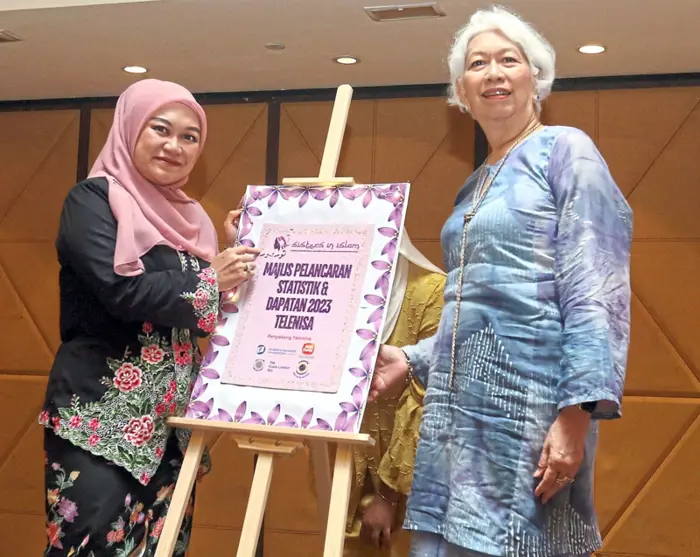ANN/THE STAR – Thirty-six-year-old Rogayah (a pseudonym) recounts how financial neglect from her former husband led to their divorce several years ago. Despite his reasonable salary, he squandered his earnings on his expensive hobby of superbikes, leaving Rogayah to bear the brunt of household expenses.
“He would vanish for weeks or even months. Most of the bills, including food, water, and electricity, fell on me,” explains Rogayah, a single mother of four children aged two to ten.
After their first child was born, Rogayah became a housewife but had to take on part-time work to support her family. Attempts to discuss their financial difficulties with her husband were met with verbal abuse.
She was unaware at the time that she could have reported his behaviour to protect herself and her children.

This lack of awareness about legal rights and protections is a key issue that Sisters in Islam (SIS), a prominent Malaysian NGO advocating for women’s rights, seeks to address through its Telenisa service.
Launched in 2003, Telenisa provides free legal counselling and advice on Syariah-related matters, including family law issues like marriage, divorce, child custody, and inheritance.
The organisation’s mission is to empower women by helping them understand their legal rights and options, and to promote justice and equality within the framework of Islamic law.
Telenisa recently released its “Statistics & Findings 2023” report, which sheds light on the challenges faced by individuals navigating Islamic Family Law.
The report was officially launched in Kuala Lumpur by Nurul Syazwani Noh, Member of the Selangor State Legislative Assembly for Permatang, Selangor.
“Telenisa plays a crucial role in providing legal assistance, offering hope and justice by helping individuals understand their rights and legal procedures within the Syariah court system,” said Nurul Syazwani during the launch.
She emphasised the importance of such initiatives in ensuring that women have access to justice and protection.
The report highlights key trends from 2021 to 2023, revealing that domestic violence is the leading cause of divorce (20 per cent), followed by failure to provide maintenance (19 per cent), communication breakdown (17 per cent), and infidelity (12 per cent).
SIS’s executive director, Rozana Isa, noted that the failure of husbands to provide maintenance remains a significant issue.
“We propose the establishment of a Federal Child Support Agency, a suggestion first made in 2005, to ensure children receive adequate and timely support,” she said.
The Malaysian NGO has proposed six measures to improve justice and support for women:
- Education and Awareness: Regular workshops and seminars to educate couples on maintenance rights and legal procedures.
- Enhanced Legal Support: Providing legal aid to assist in filing and enforcing maintenance claims.
- Stricter Enforcement: Implementing measures to ensure compliance with maintenance orders and penalising evaders.
- Financial Assistance Programmes: Creating programmes to support unemployed husbands and provide temporary financial aid to struggling wives.
- Mandatory Mediation and Counselling: Requiring couples to undergo counselling or mediation to resolve disputes.
- Fostering Community Support Networks: Offering emotional and financial support to women and engaging community leaders to advocate for better maintenance compliance.
For over two decades, Telenisa has been a cornerstone of rights-based advisory services concerning Islamic Family Laws and Syariah Criminal Offences Laws in Malaysia. Since its inception, Telenisa has assisted 15,000 clients nationwide, with 90 per cent being women.
The organisation also aims to reach underserved communities through mobile clinics and social media, addressing issues such as divorce, polygamy, child custody, and more. Recently, Telenisa has expanded its services to Sarawak, collaborating with local organisations to offer workshops and clinics.
Rozana acknowledges the numerous challenges women face, including complex bureaucratic procedures and financial constraints. “The high cost of legal representation and limited resources often leave women navigating these processes alone,” she concludes.


